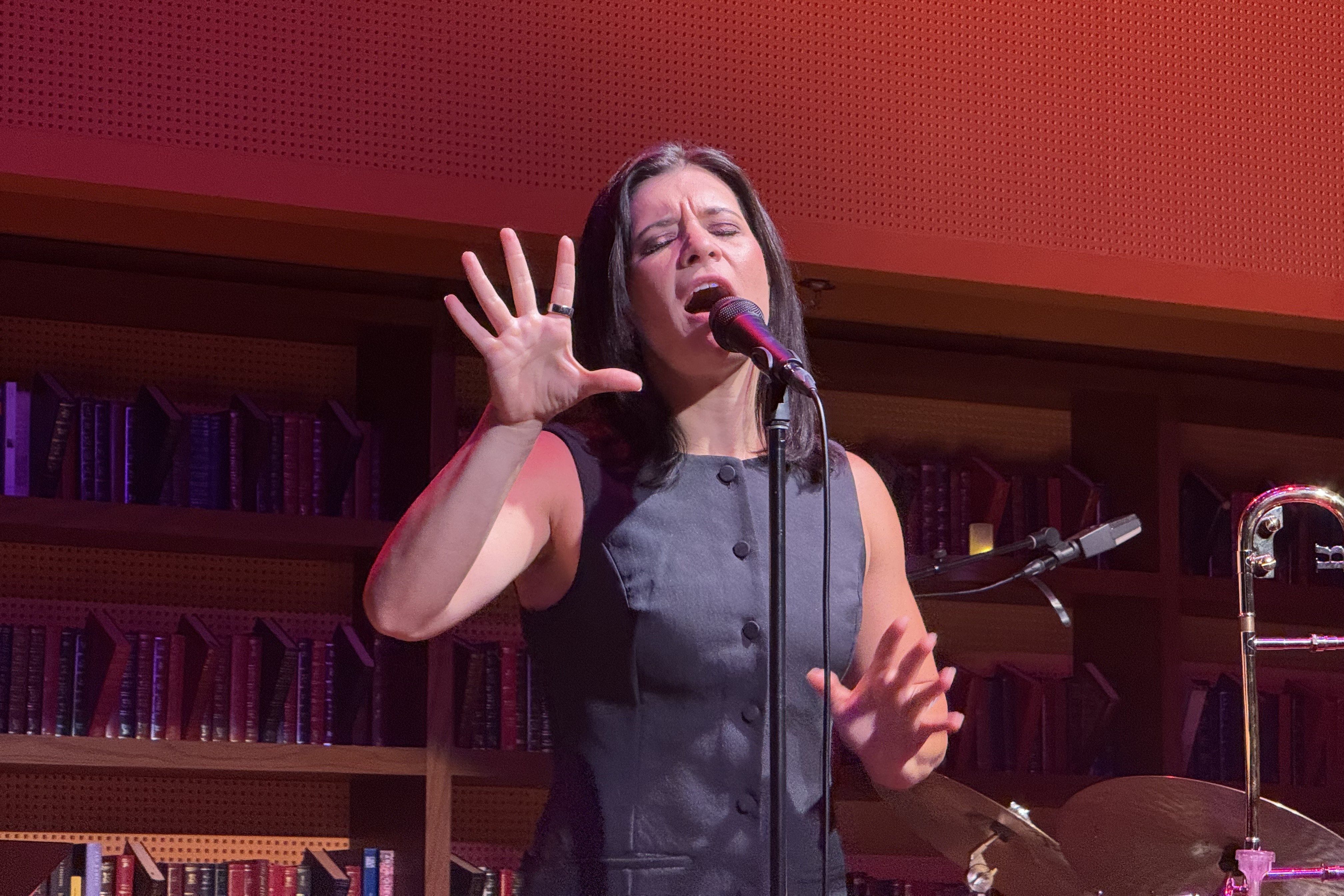
Austin Zook

Audio By Carbonatix
Aubrey Logan makes jazz for the internet age.
The musician recently took the stage at Windmills and used spine-tingling vocals to blast through time and space. She made jazz standards feel current, her originals timeless. Part of that is her voice, able to switch between frequencies, crooning, scatting, or even singing an opera.
Logan delivered a double dose of her musical prowess Sept. 26 and 27 in The Colony as part of a run of shows she’s doing until 2026. She chatted amiably with the crowd and teased her bandmates between songs, keeping the show moving, the mood light. The artist flexed her bona fides with classics like Nat King Cole’s “Nature Boy,” then followed that up with a jazzified approximation of a Weird Al parody of the song she wrote called “Jazzy Boy.” She is also more than capable of shifting gears and delivering blisteringly soulful originals, with the highlight being the bluesy, boozy “Airport Codes,” inspired by the emotional turmoil of a touring musician’s neverending travel schedule.
“[‘Airport Codes’] came out of me crying in the bathroom in various airports around the world,” said Logan during the Sept. 26 show. “Some of them had, like, very European flushing toilets, and then some of them were very American… The road can be quite a place for musicians.”
Rounding out Logan’s quartet were Myles Tate on the piano, Ryan Hagler on bass and Daniel Dufour on drums. Logan herself is certainly in prime position on stage, leading the band and working the crowd, but her backing trio were given plenty of opportunities to shine, both individually and as a group.
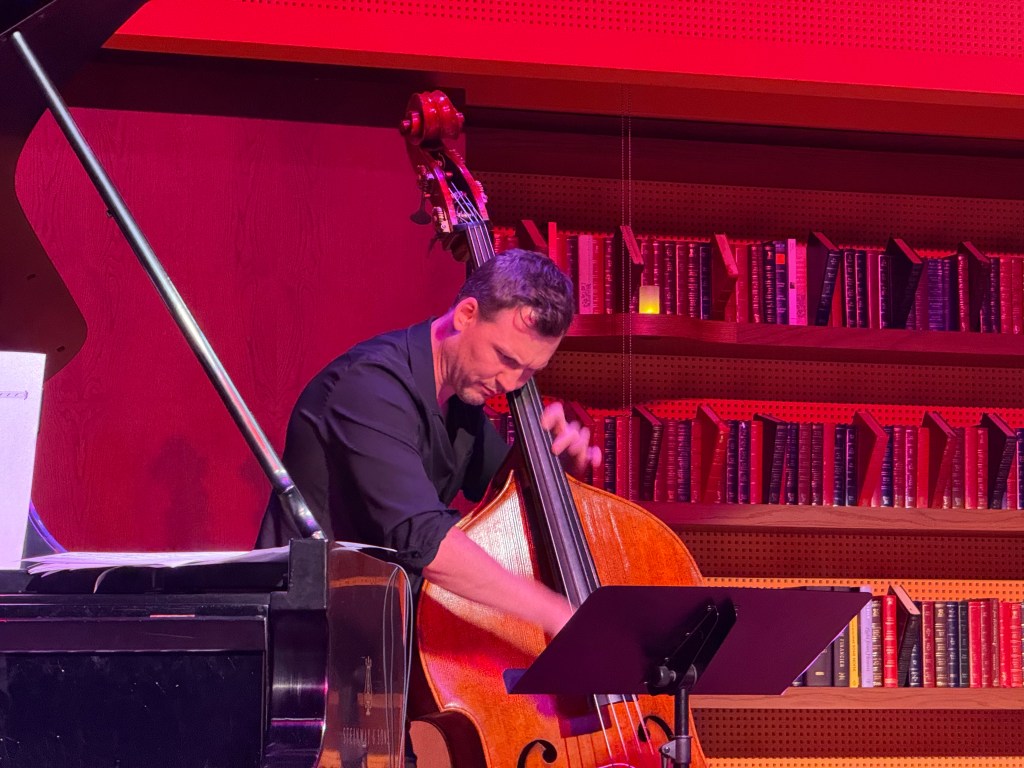
Austin Zook
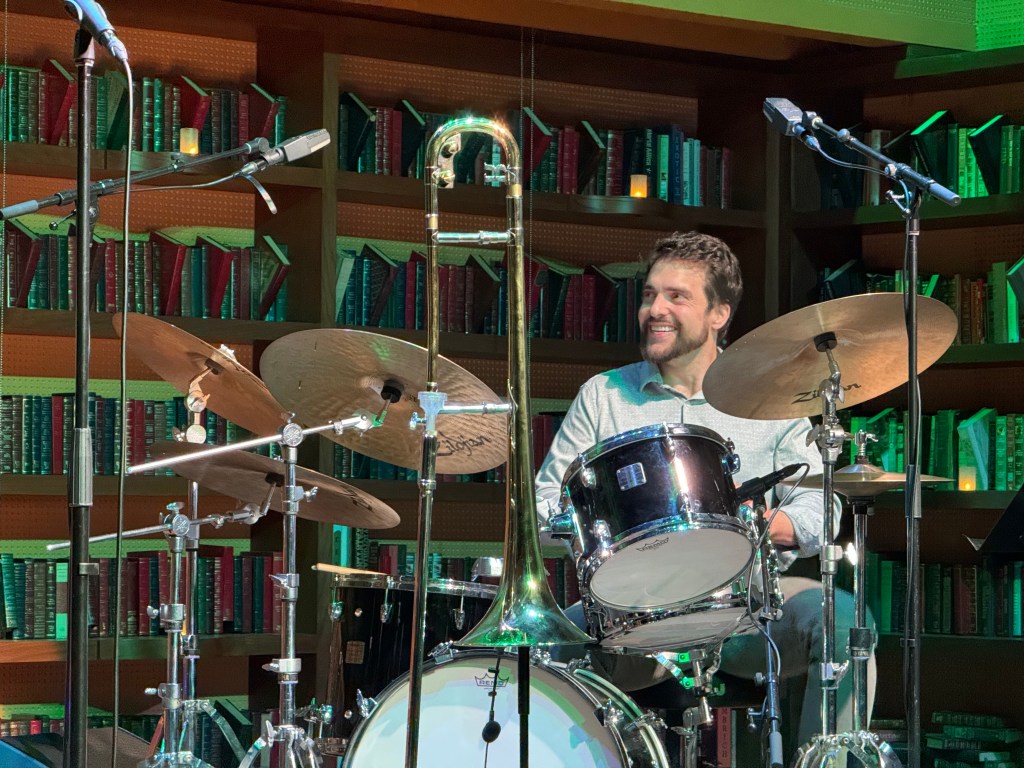
Austin Zook
Logan’s virtuosity means the band needs to be ready to shift between musical styles and work closely to complement her when she does something atypical—like performing a European opera in its original language (and, Logan assured the crowd, in its original key).
Improvisation is part and parcel with jazz, and perhaps what the genre is best known for. It is certainly part of Logan’s show, especially when playing with a quartet instead of a big band. However, she and her collaborators emphasize keeping the improvisation purposeful and additive. No one has to recreate the record note-for-note, but there is a structure that needs to be respected. If someone wants to color outside the lines a bit, so be it – so long as the overarching experience is not compromised.
“We want to play the music in such a way that it’s recognizable each time. That does differentiate me from some jazz artists. But we also are singing songs, we are telling stories. I don’t want us to be incoherent; that’s important to me,” Logan tells the Observer.
In jazz, listening can be as critical to the performance as playing for the band leader. Watching Logan perform, you can sometimes see her reacting to an improvisation. Aside from her vocals (and skill with a trombone, which was also on display at Windmills), Logan’s other superpower is her expressiveness.
Every jazz musician responds to their bandmates’ playing differently. Logan lets the music wash over her in a wave of emotion, then beams that emotion out through her facial features. When one of her bandmates goes on a run, she will close her eyes and nod, letting them steer the ship for a time before she moves into her next verse.
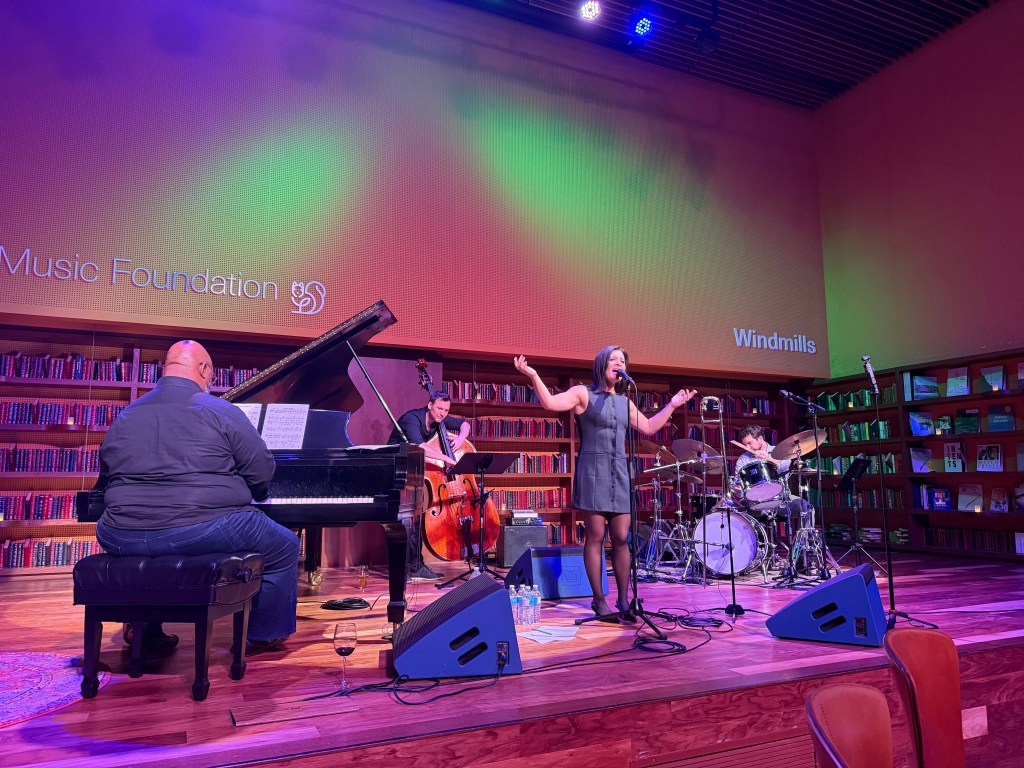
Austin Zook
At the Sept. 26 show, the same spell being worked on Logan captured the audience as well. The artist builds an easy rapport with attendees, intermingling stories from her personal life with facts about the songs she intends to play next. She asks questions and responds to answers. A light, engaging atmosphere is paramount to her.
Aubrey Logan, the “female Sinatra”
“There are jazz artists who are incredibly cerebral, incredibly academic,” she says. “I love them. My show is not that way. It’s more of the entertainment factor. Bring your kids, bring your mom. Intergenerational fun and entertainment… I would like to think I’m a female Sinatra, just in 2025 with no cigars.”
Logan says she grew up on the music of Carole King and Billy Joel, and she wants the jazz she plays to exist in a continuum with their work: emotional, enjoyable and accessible. Additionally, she wants to help people expand their understanding of jazz, both in its historical context and as an evolving art form. It is a genre composed of multiple movements across decades that can also flirt with other genres to carve new paths today.
“The jazz of the ‘50s and the ‘70s sounds wildly different from the jazz of the ‘20s and the ‘90s,” says Logan. “Stevie Wonder used jazz. Jazz led into pop. Michael Jackson used jazz. It can be as simple or as complicated as you want it to be, on either end of the spectrum.”
That jazz/pop interplay is important to Logan. She says she straddles the line between the two genres; jazz musicians think she is pop and vice versa. Instead of fighting that, she leans into it, relishing the opportunities it allows her in both camps. “I do the tradition, but … I didn’t live in the ‘50s, so I don’t know what it’s like to do this tradition without a smartphone in my hand,” she says.
Windmills Has a World-Class Jazz Club
Logan’s contemporary approach to jazz is perfectly matched with Windmills’ postmodern multi-functional approach. The jazz club, which is also an Indian restaurant with a craft brewery nestled on its second floor, both honors and subverts tradition with its menu, the venue itself and the acts it books.
Logan says she considers jazz to be at an interesting inflection point. There is a “cool” factor the music has reclaimed that eluded it 20 years ago. Venues like Windmills rely on that, the ability for jazz to stay relevant and entertaining for new crowds eager for live entertainment and human interaction.
The internet has made it easier to build an audience when you have a niche you want to work in, allowing for more expressive and experimental work to find its way to listeners. Logan capitalizes on that, saying it’s why she has a job today. She is active on social media and posts her work on YouTube; she uses these platforms to build a relationship with her audience, welcoming anyone interested and open-minded into her camp.
In her estimation, the approach has paid off.
“We got fan girls all over the place because they can find us,” says Logan. “And it’s not going away.”
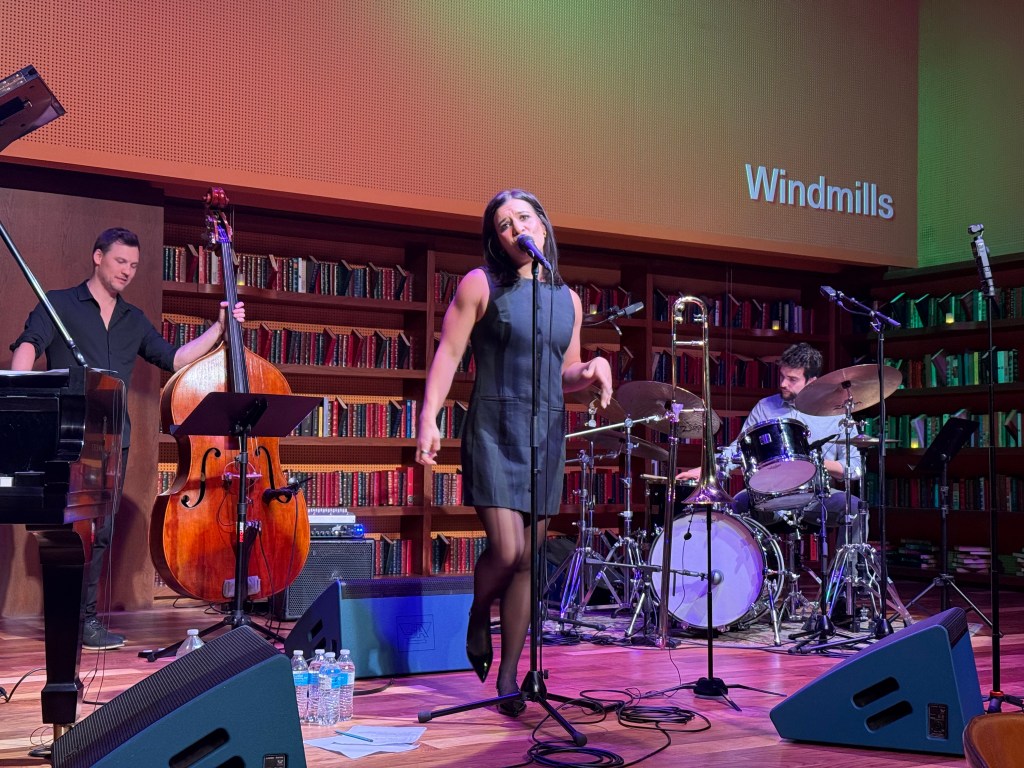
Austin Zook